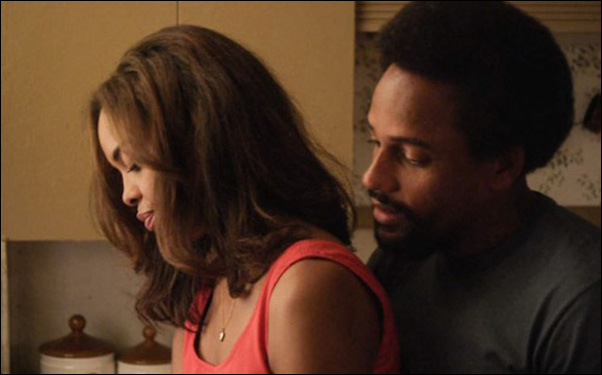As a way of opening a film, the words “Inspired by true events” have been used so often that they’ve all but lost their meaning. Yet in case of “1982,” their importance is restored.
It may not be necessary to know that Tommy Oliver grew up in a household much like the one he depicts in “1982” – in fact, the actual house in the film was where he spent his childhood in Philadelphia. But it is enlightening in terms of understanding just what he’s done with his debut feature, an often elusive and affecting drama about the effects of drug addiction.
Although not told from a first-person perspective, the nature of Oliver’s narrative unfolds as if it were directly channeled from memory, allowing the audience to experience the story of Tim (Hill Harper) and Shenae (Sharon Leal) from the point of view of their young daughter Maya (Troi Zee), who isn’t entirely wizened to the world’s more unfortunate aspects just yet.
Ironically, when we’re introduced to Maya, she’s beating her parents at Scrabble, a happy time for the family, one of the rare stable households in the neighborhood not far from where drug dealers preside over the local basketball courts. However, the moment is as fleeting as her mother, who vanishes days after she’s approached by Alonzo (Wayne Brady), an ex-boyfriend who is back down the street on the courts after recently serving a prison stretch. Since neither Tim or Maya are there to see it, we’re also left to wonder where Shenae is and why she would simply leave, abandoning a comfortable life with Tim, the owner of a laundromat with plans for a second. Yet the next time we see her, she’s strung out and crashing about the house for spare change, likely for her next fix.

Oliver and casting directors Sig de Miguel and Stephen Vincent deserve great credit for building an excellent and eclectic cast, most of whom play against type. Harper and Leal both give their all to Tim and Shenae, a pair that’s able actually able to say more about their relationship when they’re not in the same room together and although it was a brilliant joke when the jovial Wayne Brady was outed as a despicable thug in the famous “Chappelle’s Show” skit, his sweet charisma turned sour here is crucial to understanding why Shenae would leave with as little explanation as the story provides. Likewise, the small roles filled out by Bokeem Woodbine, Quinton Aaron (“The Blind Side”), and LaLa Anthony give the production, which was obviously limited in its scope, some much needed flavor.
When “1982” strains credibility at times, it’s because Oliver is still working out the kinks in his delivery. So finely and honestly observed for much of its running time, the confidence doesn’t seem to quite be there to let the film’s most dramatic moments work on their own power without musical or editorial augmentation. The climax is also slightly disappointing because it reaches for the easiest emotions when the rest of the film elicits such complex reaction. However, Oliver uses film to tell a story that couldn’t be told as effectively in any other medium, one where the bone deep hurt of absence can truly be felt after experiencing only a brief moment of seeing this family together. As a result, he may have made a film that’s dated by its title, but proves timeless.
“1982” does not yet have U.S. distribution.





Comments 1